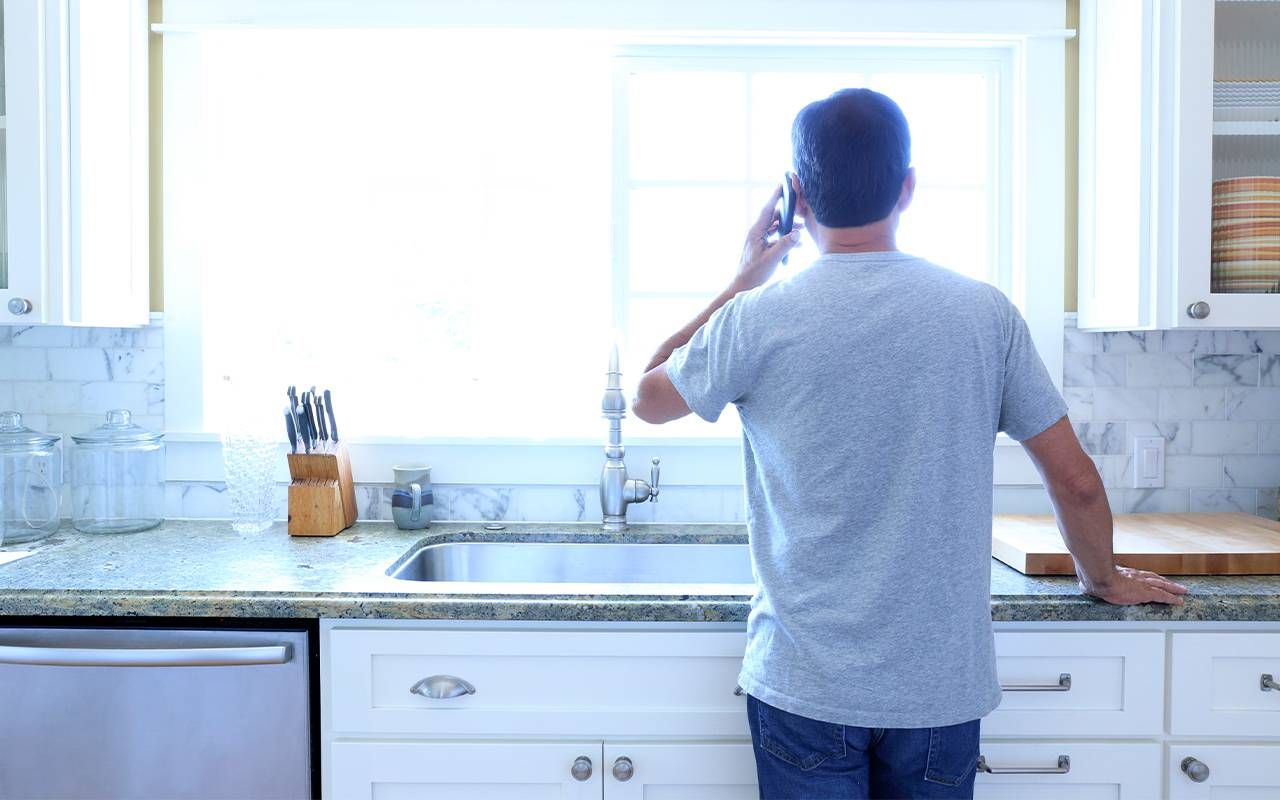Why It's Okay to Ask For Help
Caregivers can't go at it alone, so being brave about reaching out to others can be valuable
While I was on the phone recently, I began to feel it starting again. I felt lightheaded, and my eyes started to water. My heart rate slightly went up, and I felt like I was about to hyperventilate. I felt embarrassed and apologized to the person I was speaking to.

Meanwhile, I felt like I was in danger and losing control — something terrible would happen. I had a panic attack, and it wasn't the first time. The number of panic attacks I have experienced, large or small, has increased in the last few months.
The number of panic attacks I have experienced, large or small, has increased in the last few months.
Some days I have many of them, and am left drained, struggling to concentrate yet still fearful of what might happen next.
When many of the attacks unexpectedly manifest as part of other stressors, shame and remorse are the first things that come to mind. It is the last thing you want to happen — especially if you're a young caregiver like me.
I'm part of the increased number of sandwich generation caregivers, part of the Gen Z and Millennial generations. Specifically, I'm a millennial — and AARP data from 2020 indicates there are 9.2 million millennial caregivers in the U.S. Further, 61% of family caregivers are working part-time or full-time, according to AARP.
The Stressors of Outside Circumstances
In addition to working, caregivers are also considering inflation, actions from the Federal Reserve and jobs: the stress and unease about the financial future adds to caregivers wondering if they are doing everything possible to make sure the person in their care is safe, protected and has all the resources needed to thrive.
However, I worry daily if I am doing enough to ensure she is okay, increasing my anxiety.
For me, it is something I wonder every day when I help take care of my mom. While she can work, her health issues have prompted her to be selective as to the kind of work she can comfortably take on.
However, I worry daily if I am doing enough to ensure she is okay, increasing my anxiety. Anxiety is prevalent, and so too is depression. The increased panic attacks that have resulted make me feel guilty that I am not doing good enough, not just as her caregiver but ultimately as her son.
There is also the reluctance within broader society to discuss mental health issues as people try to navigate a professional life while facing challenges. And on a personal level, for some, it is easy to become isolated from people you thought were your friends and who you could confide in.
Long story short — the negative bias around mental health is still out there, and the COVID-19 pandemic, which exacerbated the need for access to mental health services, has not seemed to change that. For caregivers like myself, navigating the stigma on top of the other outside challenges, mainly economic, is paramount.
Creating Common Ground
During the pandemic, the negative bias towards anxiety and the shame of symptoms, including panic attacks, was something that Arianna Galligher and her colleagues wanted to combat.
It is okay to feel how you feel, and acknowledging those feelings goes a long way in helping you move forward.
Galligher, a licensed independent social worker and the Associate Director of the STAR (Stress, Trauma, and Resilience) Program at The Ohio State University's Wexner Medical Center, looked at the problem through a two-fold lens as the pandemic began, beginning with the people working at Wexner.
"The action item was to quickly recognize that all of these shifting workflows and response to this global health crisis was going to take a toll on our providers and everyone working to keep the hospital running," Galligher said in a telephone interview. "They would need access to support."
After expanding STAR's peer support services to 24 hours a day and creating virtual support groups, along with doing rounds in high-stress level units, the focus was then on the public. Galligher anticipated the next phase on how people would be reacting — whether with outside concerns about financial wellbeing, the need for connection or feelings of anger and sadness.
The message was simple. It is okay to feel how you feel, and acknowledging those feelings goes a long way in helping you move forward. Galligher says that despite the pandemic's broader impact, it allowed some issues happening in plain sight to surface.
"It created a common ground. Before the pandemic, people didn't understand what it meant to struggle from a mental health standpoint," Galligher said, adding that the realm of conversations went from the traditional 'are you crazy' attitudes to accepting that it was okay to ask for help. "It normalized a conversation that we've been struggling to have for decades."
A Common Language and Sense of Understanding
Natalie Pope, Associate Professor and Director of Ph.D. Programs at the University of Kentucky's College of Social Work, which has researched young adult caregivers, said people should be able to acknowledge the impact of trauma on aspects of their lives, whether it is relationships, the stress from blurred lines of personal and professional lives, or the financial and economic disruptions that resulted.
"Acknowledging we've been through a trauma is the first thing we should do," Pope said in a telephone interview. "Some of it is still being minimized. [We should] recognize it." Pope notes that more research needs to be done on the specific impact of trauma on caregivers during the pandemic but says that generally speaking, we are still recovering, and connection helps in recovery.
"I hope we can have a compassionate conversation on what it means to be struggling and how we can course correct in times of stress."
"Being connected to people helps us to recover," Galligher said; the pandemic allowed for more acceptance of needing help to tackle the stressors of outside influences — economic, helping with caregiving, or other issues that come up.
"The shared stress and trauma of the pandemic created this common language and common sense of understanding that people are struggling with outside things beyond their control. It would be nice to have support during those times," Galligher said. "I hope we can have a compassionate conversation on what it means to be struggling and how we can course correct in times of stress."
According to Galligher, external judgments in society surrounding mental health are still hard to combat, and while there won't be an easy fix, she wants to work towards fixing it.
"Stigma is sort of this construct that describes a societal and overarching belief about something," Galligher said. "When a person internalizes that belief, that result is a feeling of shame. Depending on what the individual says to himself or herself about accessing support, that will dictate their emotional response. Sometimes it's difficult to escape external judgments and we want to tackle that. It is really about the need to stop the judgment."


